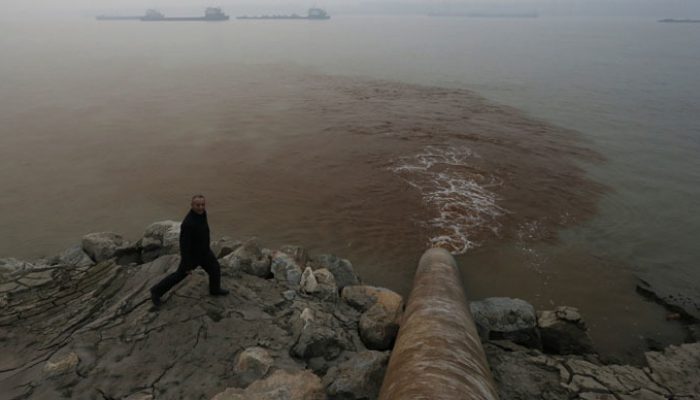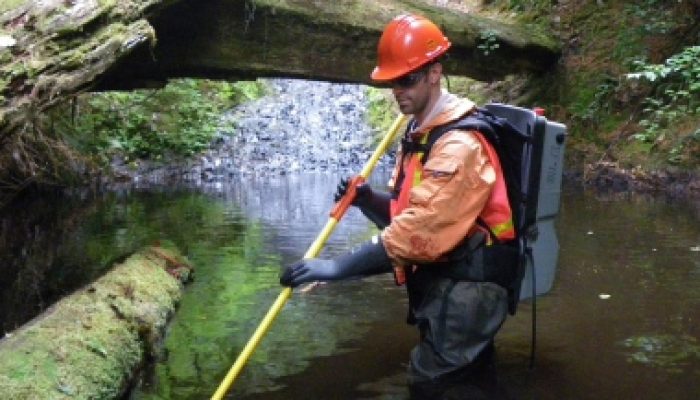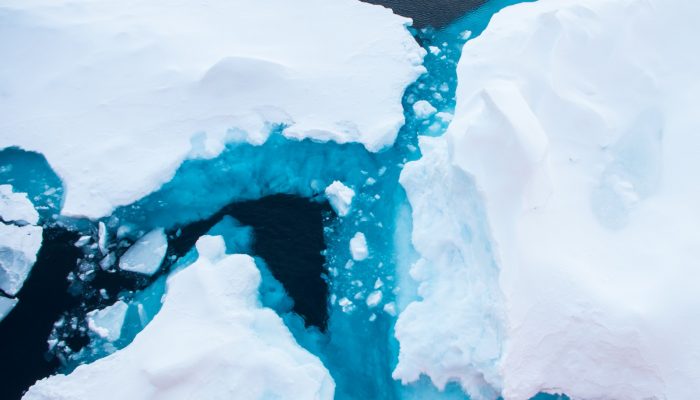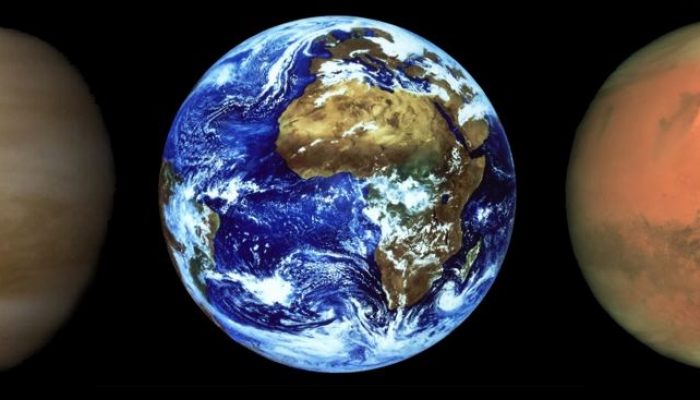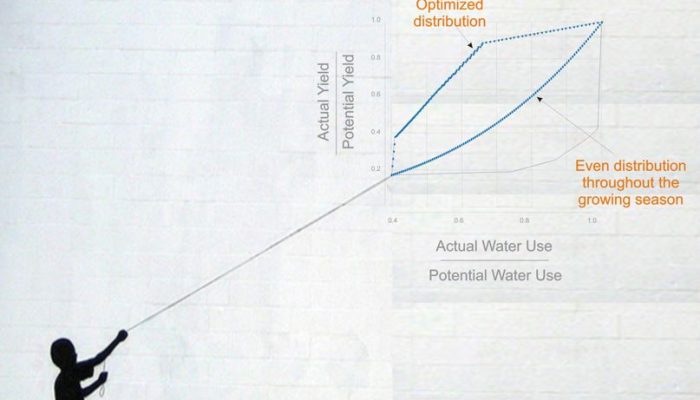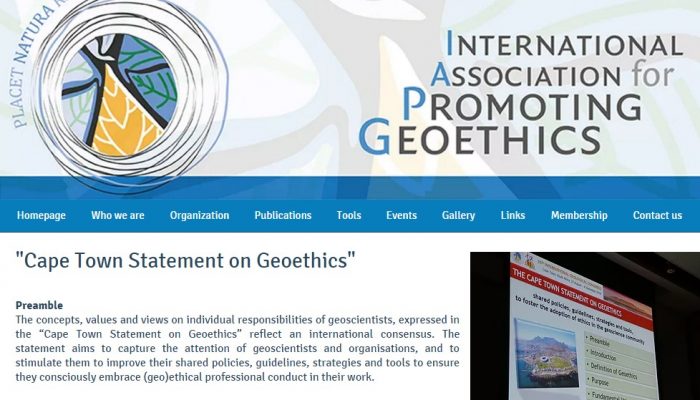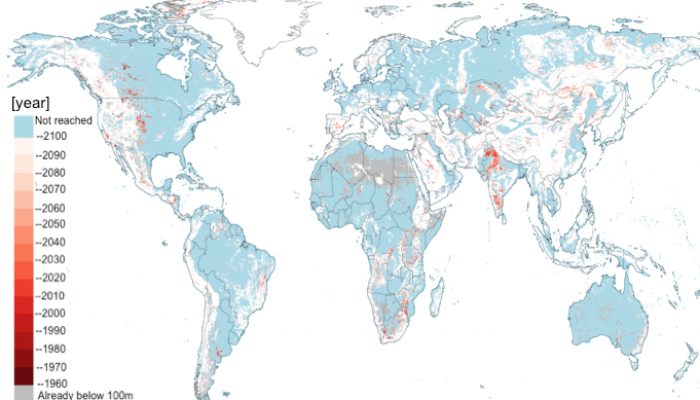by Tara Forstner, University of Victoria I recently wrote a term paper for one of my graduate classes on the limitations of the water table fluctuation (WTF) method, and I have to say, WTF! Techniques using groundwater level fluctuations as a means of calculating recharge are very common. With observation well hydrographs and precipitation data, this method can be applied quite simply, requiring n ...[Read More]
WaterUnderground
Deep challenges: China’s ‘war on water pollution’ must tackle deep groundwater pollution pathways
by Matthew Currell, School of Engineering, RMIT University, Australia As part of its recent ‘war on pollution’, the Chinese Central Government released a major policy on water pollution control and clean-up, called the ‘10-point water plan’ in 2015. The plan aims to deal once and for all with China’s chronic water quality problems. China’s water quality deficiencies became widely recognised around ...[Read More]
WaterUnderground
What is a hydrogeologist?
Hydrogeologists are a diverse group, in part because we come to this discipline from so many different paths. We come from different academic programs in engineering, geological sciences and environmental sciences. These differences in backgrounds create a diversity of perspectives, which enriches hydrogeology and allows for dynamic collaborations. Engineers and geophysicists are known for brin ...[Read More]
WaterUnderground
Groundwater and Agriculture: Tapping the Hidden Benefits
By: Sam Zipper, Postdoctoral Fellow, McGill University/University of Victoria When people think of groundwater in agricultural landscapes, pumping and irrigation are usually the first thing that comes to mind. However, groundwater can have a more subtle but extremely important impact on crop production when we decide to leave it underground: When there is shallow groundwater beneath an agricultura ...[Read More]
GeoSphere
Photo of the Week
Keepin’ then comin’! This weeks photo is brought to you by Immageo as per usual. It can be found: here The image was taken by Dmitry Tonkacheev, IGEM RAS, Moscow, Russian Federation. Dmitry writes, “This is Co-bearing sphalerite, synthesised using gas transport method at 850C looks like the Christmas Tree. Although presented intergrowth of crystals was made in the laboratory, the ...[Read More]
GeoSphere
Photo of the Week
This amazing picture above was taken by Mikhail Varentsov, Lomonosov Moscow State University, Moscow, Russia. It can be found here. Mikhail writes “Melting summer sea ice is separated to pieces by the net of cracks, and their edges have amazing light-blue color, which is in contrast with white ice surface and deep blue sea water. Photo made during NABOS-2015 expedition.” What this phot ...[Read More]
WaterUnderground
How did our planet get its water?
Post by WaterUnderground contributors Elco Luijendijk and Stefan Peters from the University of Göttingen, in Germany. After my first ever scientific presentation, someone in the audience asked a question that caught me off guard: “Where does the groundwater come from?”. “Ehm, from rainfall”, I answered. The answer seemed obvious at the time. However, we did not realize at the time that this is a ...[Read More]
WaterUnderground
Crop kites
Post by WaterUnderground contributor Mikhail Smilovic. Mikhail is a PhD candidate in the Department of Civil Engineering at McGill University, in Quebec. Crops use water for photosynthesis, absorbing nutrients, and transpiration, or the plant-equivalent of sweating. A crop may experience water-stress if the soil surrounding the roots is not adequately wet, and this stress will affect the crop dif ...[Read More]
Geology for Global Development
GfGD endorses the ‘Cape Town Statement on Geoethics’
At the start of 2017, the GfGD Board of Trustees formally endorsed the ‘Cape Town Statement on Geoethics‘, joining organisations such as Geology in the Public Interest, the American Geophysical Union (AGU), and the Geological Society of America (GSA). The ‘Cape Town Statement on Geoethics‘ was prepared during the 35th International Geological Congress in Cape Town, South Af ...[Read More]
WaterUnderground
Limits to global groundwater use
Post by WaterUnderground contributor Inge de Graaf. Inge is a postdoc fellow at Colorado School of Mines, in the USA. Groundwater is the world’s most important source of freshwater. It supplies 2 billion people with drinking water and is used for irrigation of the largest share of the world’s food supply. However, in many regions around the world, groundwater reserves are depleting as the re ...[Read More]


